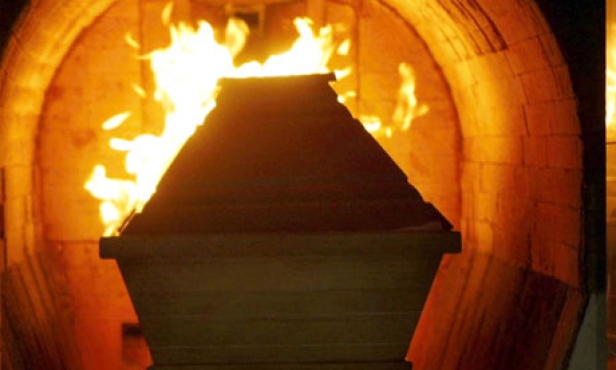Mortuary College Student Gives Interesting Perspective On The Lack Of Cremation Education
Article by: Krystal Mignat and was originally published on CremationSuccess.com
Across the country for funeral service students and interns, course topics have ranged from anatomy and pathology to management, embalming, and restorative arts; yet funeral programs have not traditionally emphasized details regarding cremation or cremation services. In my opinion, much of the curriculum is still geared toward the traditional funeral service even though the percentage of those choosing cremation for final disposition has risen to 44% in 2013, per CANA. With these percentages rising, students and funeral directors must know what steps to take in assisting those who have chosen cremation for their loved one.
Funeral services and preservation began during ancient Egyptian times and have been substantially progressing ever since. The traditional funeral service included embalming of the body and/or burial whereas cremation was frowned upon. Cremation was considered cheap, unethical, and in some religions it was simply just not allowed. It was not until the 1980’s that cremation became more popular. Cremation is now accepted in the Catholic faith, younger people who pass away prefer cremation, and families are finding it comforting and convenient to have grandma at home on the mantle. Regardless of the reason for a family choosing cremation, the profession must accept and adapt to changing conceptions. As a funeral service intern, I notice that many funeral directors personally prefer burials vs. cremation, especially the older generation directors. As funeral directors, it is our main purpose to serve the families of the deceased and abandon our personal agendas.
The majority of practical education for becoming a funeral director happens during the internship, including details regarding cremation. Another thing that cannot truly be taught in class is how to speak to the families at need, whether it is traditional funeral services or cremation services. The ability to speak to and comfort families, while clearly providing their options for arrangements is a talent that must be learned by observation in a funeral home setting. Many times families who choose cremation assume that their loved one is cremated and they receive the remains, the end. But a key role of the funeral director is to guide these families and expose them to the variety of services available.
There are many different types of cremation services available to families. When the average person hears the word “cremation”, they assume it is inexpensive, abrupt, and an easy way out of dealing with the loss of a loved one. What they do not know is that the details and paperwork put into cremation are far more than that used for traditional funeral services, which means, funeral directors actually need to be very knowledgeable and spend even more time focusing on the family to ensure they know the process in detail before cremation can occur. Choosing cremation for final disposition is not just “an easy way out”; there are a variety of options available such as having a visitation with the embalmed body before cremation, a memorial service, and even burial of the remains.
I recently had the privilege and honor of sitting in on my first arrangement with another funeral director. Not only did the family feel overwhelmed by the paperwork involved with cremation, but I myself was feeling the same way. The details and amount of initialing and signing that goes into cremation is very extensive. While one may be inclined to rush through the arrangement meeting, it should be the funeral director’s priority to make sure the family knows exactly what they are signing and why cremation requires so much paperwork. Many times I hear, “the law requires it” with no explanation. “Why?” “Why does the law require it?” “Why is there so much paperwork?” “What am I signing?”
These are all rational questions that can come up in an arrangement meeting with the family and as a funeral service professional, those questions must be answered. However, if by chance these questions do not get answered, it could put the funeral director and funeral home at risk for litigation. Families are paying high costs for funerals and cremation services; they are not afraid to sue a funeral home for failure to disclose certain information regarding paperwork, even if it is written out for them. It should never get to this point; every funeral director should be knowledgeable and clear when explaining the processes of funeral arrangements to families. A mentor once told me, “In the funeral profession, failing to prepare is preparing to fail.”
In conclusion, cremation is an ever-increasing choice for funeral arrangements. As such, funeral director’s need to be highly educated about the details of cremation and provide cremation as an equal option for grieving families.




